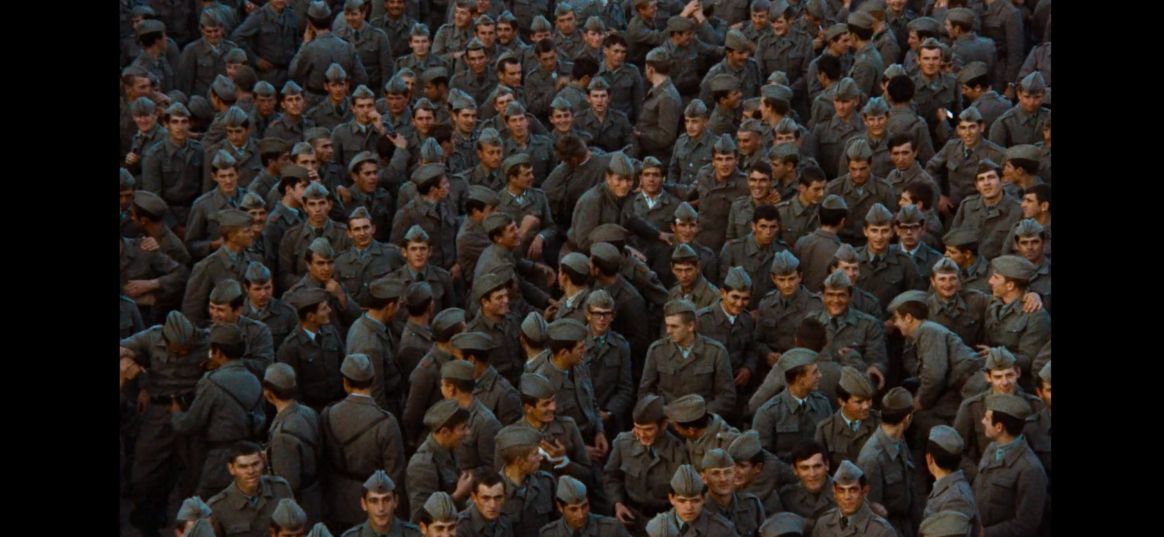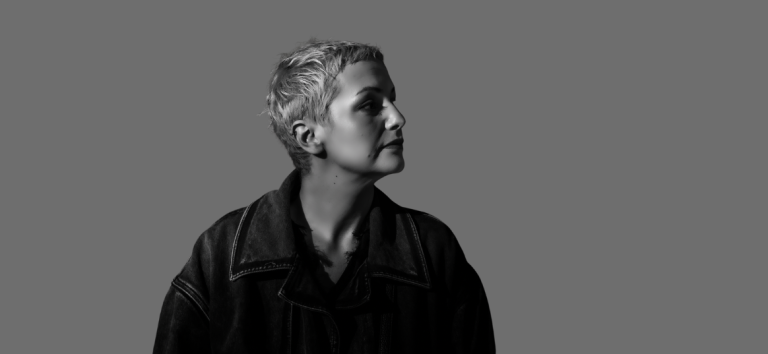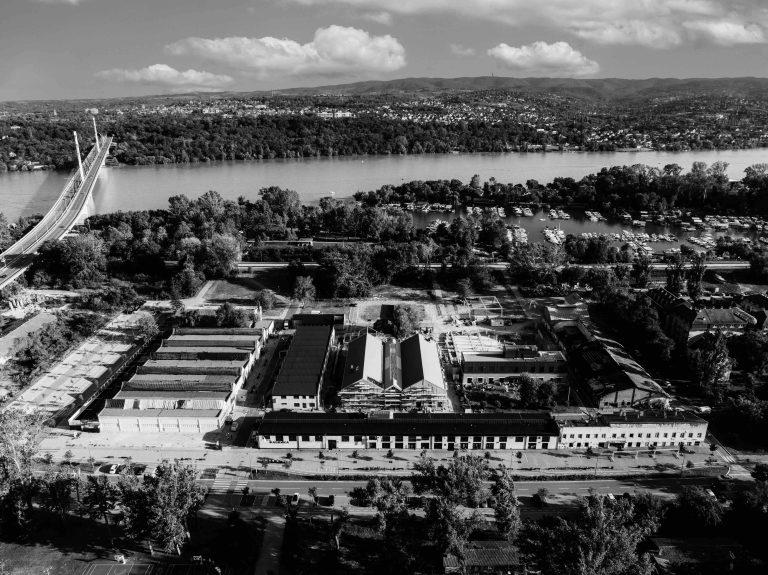Karpo Godina, one of the most prominent figures of the Yugoslav Black Wave, always pushed the boundaries of what could be shown in film. His work is characterized by subversive ideas, social critique, and artistic freedom, and the film On Love Skills is a perfect example of this approach. Filmed during his military service, the movie did not become the propaganda the JNA army expected but rather a powerful critique of the social norms and military structures of the time.
As part of the Darkest Wave programme at the seventh Kaleidoscope of Culture, on 4 and 5 October in the District, we will have the opportunity to see this film, and ahead of the Visual Arts Week, we took the opportunity to talk with Karpo about his brave undertaking in making it. Reflecting on the atmosphere of that time, we learned about the process of making the film and its significance within the broader context of the Yugoslav Black Wave, which, despite its brief existence, left a deep impact on both local and world cinema.
When we talk about the film On Love Skills, which the Novi Sad audience will have a chance to see in the District on 5 October, can you briefly describe the atmosphere in society and the country at the time of filming, and what are your strongest impressions from that period?
That year, I was drafted into the army. Since I had graduated from college, I had the option to join at 27, while others joined at 20. Therefore, I went in quite late. I decided to be a regular soldier in Slovenia, but after half a year, since they knew I worked in cinematography and were familiar with my work, I was invited by Zastava Film, the institution that made educational films for the army, to create something educational, which brought me to Belgrade. They were aware of my previous work, which was not always to the authorities’ liking, but until that point, it wasn’t so rigorous. Although Želimir Žilnik was called for questioning over Early Works, it wasn’t yet that serious. Films like mine already had negative connotations, but it wasn’t until 1972 that the term ‘Black Wave’ became official, and that same year, we were expelled. I made On Love Skills just before that and caught the last train.
This film features the story of thousands of young women who live and work isolated from the soldiers stationed in the same area, with no contact between them. How many soldiers were involved, and what was the filming process like?
At Zastava, I worked as an editor and camera operator for secret aerial shoots; I was a civilian, and they didn’t know I was a soldier at the time. When they asked if I had an idea for an educational film, I mentioned an article in the military magazine Front about Macedonian schools and factories full of young women near a garrison of 14,000 soldiers, where the large military training ground prevented any contact between them. I suggested making a film about that situation, which they enthusiastically accepted, giving me free rein to go to Macedonia, where I had the chance to command soldiers and film. I seized that opportunity and, instead of the script I presented to the commission, I made my own film with the topic ‘make love, not war.’ After completing and screening it, I had to face a military court.
How did the state leadership react at the time, considering that the film was supposed to glorify the JNA but did not? What was most problematic?
At the military court, which was in a now half-ruined building (bombed during the NATO intervention) in Sutjeska Street, a panel of generals interrogated me, threatening me with a long prison sentence. I was lucky because a dramaturg from Zastava Film, poet Vuk Krnjević, heard about my questioning and entered the room at the last moment. When he asked what was going on, they responded that I had committed a severe breach and tricked them. He then delivered a fantastic speech about artistic freedom and creativity, which left the panel speechless. In the end, they told me, ‘Soldier Karpo Godina, this is the last film you’ve made for us.’ The next day, an order was issued for the film to be destroyed so that not even a fragment would remain.
Were you present when the film was destroyed?
I wasn’t there, but I was sure they had done it. However, you know how they say, ‘our people preserve evidence.’ About ten years ago, while I was accidentally searching for other films at Zastava Film with Kinoteka, I asked an older lady there if she knew anything about On Love Skills. She said she had recently been organizing negatives and positives. ‘Are you kidding?’ I asked in disbelief, and she then found and showed me a positive copy. I suggested digitizing it in Vienna, so that copy now exists.
So, the film wasn’t destroyed after all?
No, the film was preserved, similar to Žilnik’s Freedom or Comics, which was confiscated but later resurfaced in Kinoteka. The police took parts of the film, so it wasn’t completely restored, but it was preserved.
Your film was never publicly screened for an audience, was it?
Never! It was immediately censored, and the next day, I was called for questioning.
You mentioned they told you you wouldn’t be able to make anything else. What consequences did you face after the trial?
I was probably the luckiest of them all—I was banned from directing for ten years, but they forgot I was also an editor and cinematographer. Therefore, I stayed in the country, unlike Žilnik, who had to move to Germany, Makavejev, who went to the United States, and Pavlović, who worked in Slovenia. Our colleague Stojanović ended up in prison, and Petrović moved to France. Nevertheless, I managed to work on other projects during those ten years, and in 1980, I directed The Medusa Raft.
How do you see the Black Wave today? What did it mean then, and what does it mean now?
The term ‘Black Wave’ was coined by politicians and journalists at the time. In fact, it was a wave of new Yugoslav cinema and one of the finest periods of our cinematography. Back then, people eagerly awaited what we would present next and how we would approach certain topics. Unfortunately, it all ended in 1972, and the films produced afterward were very different.
Although the Black Wave was short-lived, it had a strong influence on today’s film art. How do you see that influence?
Those films have been a long-time attraction, and for the younger generation, they are almost unattainable. Their impact is undeniable because they represented a major step forward in the film industry.
Interviewed by: Milana Milovanov
Photo: Private Archive








